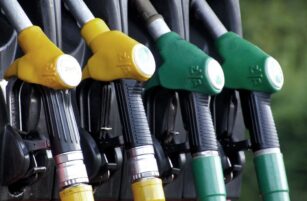Insight Focus
- We’ve upped our sugar production estimate for 2021/22 on strong Indian, Pakistani cane crops.
- Consumption outlook remains unchanged at 173.6m tonnes.
- The 2021/22 surplus widens.
Global Sugar Production Increases in 2021/22
We think the world will produce 179.3m tonnes of sugar in 2021/22, up 3.2m tonnes from our last update.
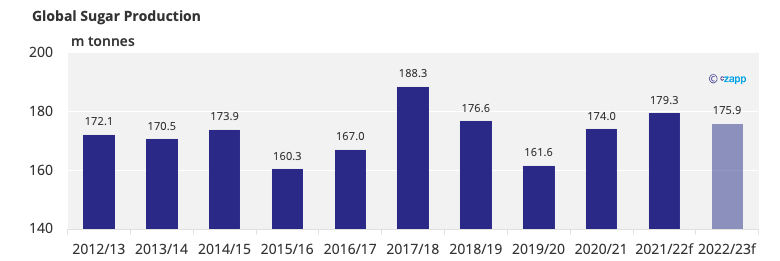
Excellent agricultural yields in India and Pakistan have fuelled this increase.
Global Sugar Demand Holds Firm
We still think the world will produce 173.6m tonnes of sugar in 2021/22.
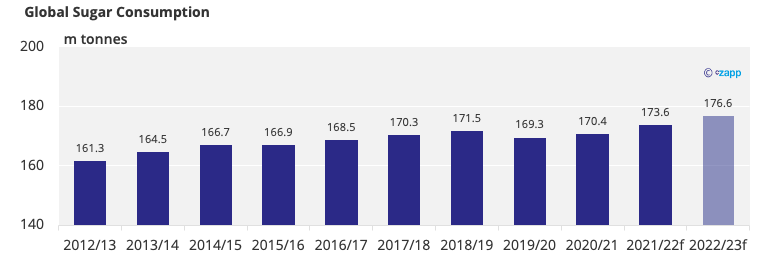
The Global Surplus for 2021/22 Widens
We now think the world will produce 5.7m tonnes more sugar than is needed to satisfy demand in 2021/22, up 3.3m tonnes from our last update. If it does, it’ll be the largest surplus since the record 2017/18 season.
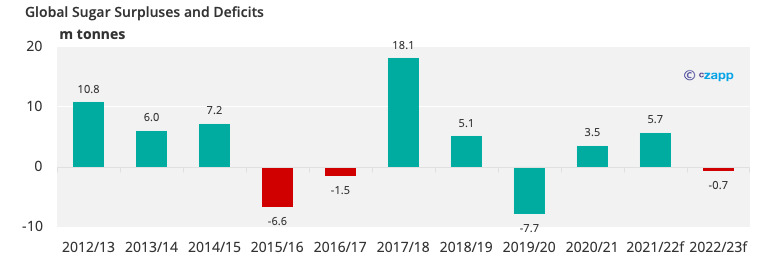
Regional Production

Regional Updates
We think Pakistan will produce almost 8m tonnes of sugar in 2021/22, up by more than 2m tonnes year-on-year. If this materialises, will mark a record high year for Pakistan.
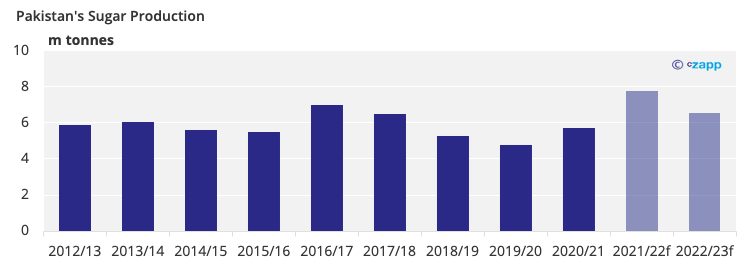
This growth in production is due to good weather boosting agricultural yields, we’ve also made a small increase to our area estimate.
If you have any questions, please get in touch with us at Will@czapp.com
Other Insights That May Be of Interest…
Sugar Statshot: Behind the Data
Sugar Statshot: Surplus Shrinks Despite Strong Indian Production
Explainers That May Be of Interest…
The Sugar Industry in Maharashtra and Karnataka





